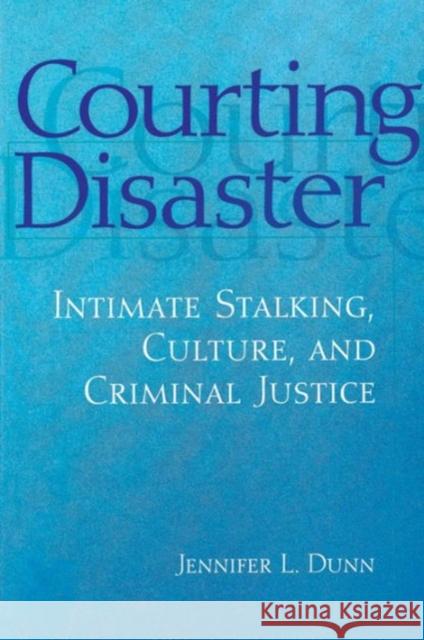Courting Disaster: Intimate Stalking, Culture and Criminal Justice » książka
Courting Disaster: Intimate Stalking, Culture and Criminal Justice
ISBN-13: 9780202306612 / Angielski / Twarda / 2002 / 204 str.
This book is about women who are coerced, intimidated, and stalked by former intimates. It is about the things these women do to manage this situation, and what happens to them as a consequence. Stalking is a behavior that has relatively recently been defined as problematic, and as criminal when violence or the threat of violence occurs. This new category of crime has created a new type of victim. How such victims come into being, interact with their former partners, and seek help, is the subject of this book. It is also about living through what some women consider a form of secondary victimization by the criminal justice system. The definition of someone as a victim is not self-evident, but is contingent upon interpretation. Thus this book is also an account of how women come to decide they are victims of stalking and seek to convince others of this. It uses a variety of data and methods to examine this phenomenon from the perspectives of both victims and law enforcement agents, and adds to our understanding of responsibility and blame when violence occurs between intimates. By examining social constructions of this particular type of victimization and the choices stalking victims make, the readers learn more about the forces constraining human decisions. Stalking victimization is complicated because it is an ongoing process. It often does not stop once the criminal justice system is involved. Women who are being stalked by their former partners face a profound dilemma in their efforts to manage their pursuers and to pursue their cases through the criminal justice system. Dunn offers a wide-ranging, thought-provoking, and sensitive examination of the lived experience of intimate stalking victimization. In exploring the ways in which we socially construct and confer meaning upon intimate violence, the author draws upon interviews with stalkers and victims, courtroom testimony, analyses of case reports, and an independent survey instrument that reveals ambivalence of the prevailing culture to the problem. Courting Disaster will be valuable in women's studies and counseling courses and a useful text in sociology and criminology.











